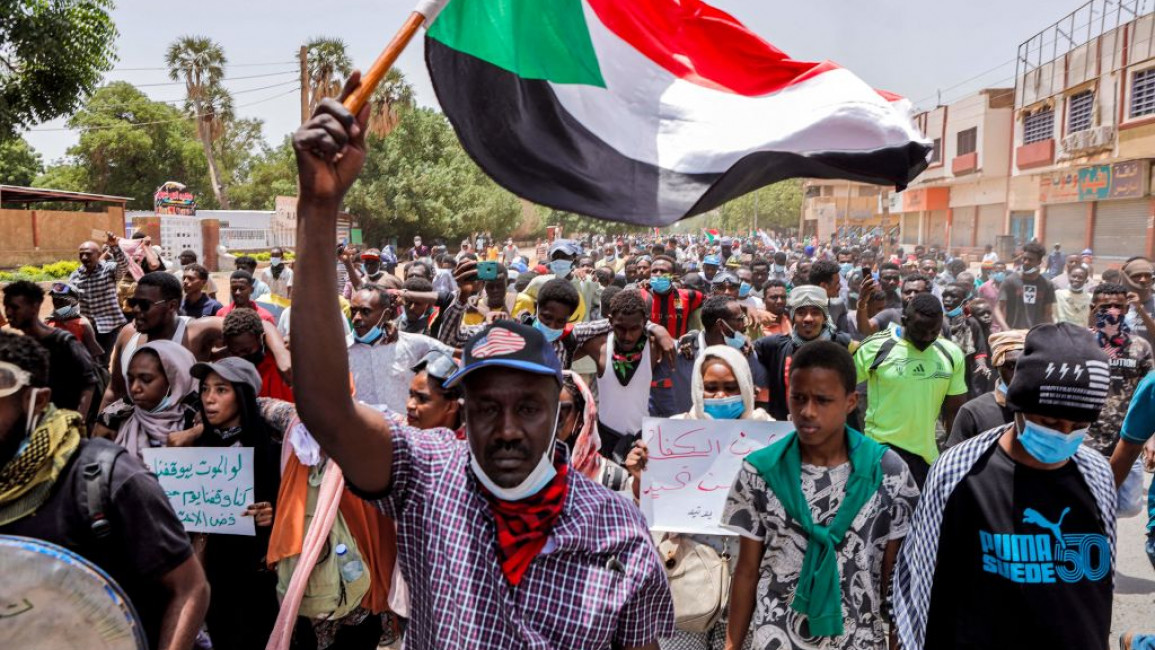Sudan: Burhan, Dagalo, pro-democracy group sign framework deal, key dissenters stay out
Sudan's ruling generals and the main pro-democracy group on Monday signed a framework deal until elections but key dissenters have stayed out of the agreement.
The deal pledges to establish a new, civilian-led transitional government to guide the country to elections and offers a path forward in the wake of Sudan's stalled transition to democracy following the October 2021 coup.
The deal – the first of at least two planned accords – was signed by Sudan's two ruling generals, Abdel Fattah Burhan and Mohammed Hamdan Dagalo, and the leaders from the country's largest pro-democracy group, Forces of Freedom and Change (FFC), at the Khartoum Republican Palace.
However, several of Sudan's key dissenting political forces have boycotted the deal, including Sudan's grassroots pro-democracy network, known as the Resistance Committee, which has continually refused to negotiate with the ruling generals.
As the key players put pens to paper, hundreds of citizens rallied in Khartoum to protest against the deal, setting fire to tyres, erecting barricades and facing down water cannons.
"The settlement is betrayal" and the FFC "sold our blood," demonstrators cried.
"We reject this deal as it overlooked street demands for justice for the people killed since the coup," said protester Mohamed Ali.
According to the draft, the deal envisions Sudan's military step back from politics.
The agreement also stipulates that the "revolutionary forces" that signed the deal will decide upon a new prime minister to oversee a two-year transition, a 24-month period that begins after a premier is appointed.
UN special representative Volker Perthes said the signing was "a culmination of the sustained efforts of Sudanese stakeholders over the past year to find a solution to the political crisis and restore constitutional order".
The initial deal was described as "welcome" by the United States and European Union in a joint statement from the "Friends of Sudan" group, which also included the United Kingdom , Canada, France, Germany, Japan, Norway and Saudi Arabia.
UN High Commissoner for Human Rights Volker Türk hailed the accord as an "important first step toward a political agreement".
During the signing ceremony, Dagalo reiterated the military's purported commitment to exit the political scene, saying "it is essential to build a sustainable democratic regime".
Other signatories included the Islamist Popular Congress Party, a faction of the Democratic Unionist Party and some ex-rebel groups who signed a 2020 peace deal.
The deal is roughly based on a draft transitional constitution proposed by Sudan's Bar Association in September.
It does not address details concerning thornier political issues, such as a transitional judiciary system and the implementation of military reforms, which have been left for a follow-up accord.
It also stipulates that the military will form part of a new "security and defence council" under the appointed prime minister.
The agreement also vows to unify Sudan's armed forces and subject controls on military-owned companies.
Thousands of Islamists in Sudan rallied Saturday against efforts by the United Nations to solve the political crisis sparked by last year's coup.https://t.co/Mj6ESo34gz
— The New Arab (@The_NewArab) December 3, 2022
The document makes specific mention to Sudan's wealthy paramilitary force, the Rapid Support Forces, headed by Dagalo.
The force amassed wealth through its gradual acquisition of Sudanese financial institutions and gold reserves in recent years.
However, no further details were given on how or when these reforms would be implemented, with many of the amendments were promised in a 2020 deal which saw Sudan's previous transitional government make peace with several rebels in Sudan’s far-flung provinces.
Sudan has been plugged into turmoil since its leading military figure, General Burhan, mounted the October 2021 coup that upended the country's former democratic transition after three decades of autocratic rule by Omar Al-Bashir.
The former leader was toppled in April 2019 following a popular uprising.



